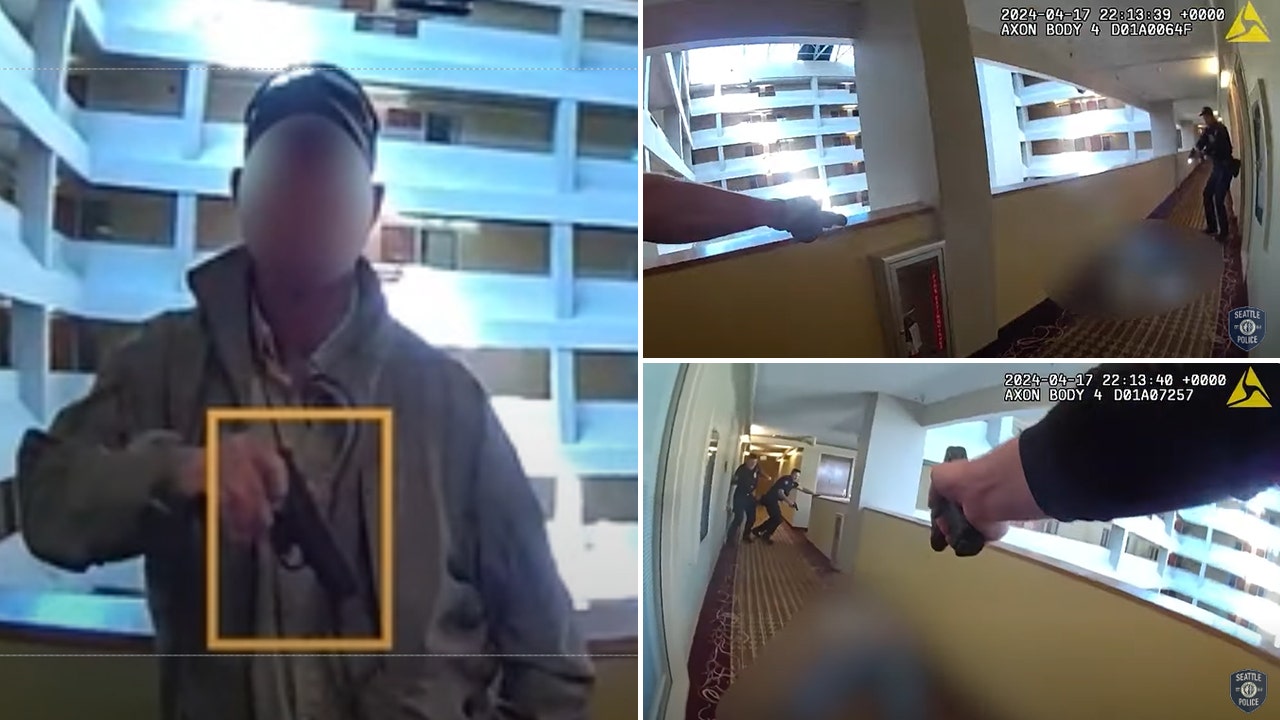U.S. officials said on Tuesday that the Israeli strike that killed dozens of Palestinians in southern Gaza was a tragedy but that it did not violate President Biden’s red line for withholding weapons shipments to Israel.
The bloodshed came after Mr. Biden warned earlier this month that the United States would block certain arms transfers if Israel targeted heavily populated areas in Rafah — a warning that has been tested regularly as the war has ground on.
John F. Kirby, a White House spokesman, said the deaths were “devastating” but that the scale of the attack was not enough to change U.S. policy. “We don’t want to see a major ground operation,” Mr. Kirby told reporters. “We haven’t seen that.”
Israeli tanks were on the outskirts of the city “to try to put pressure on Hamas,” Mr. Kirby said. He also offered a measure of specificity about Mr. Biden’s warning to Israel, which critics have said was too vague.
“We have not seen them go in with large units and large numbers of troops in columns and formations in some sort of coordinated maneuver against multiple targets on the ground,” Mr. Kirby said. “Everything that we can see tells us that they are not moving in in a major ground operation in population centers in the city of Rafah.”
Mr. Biden has faced pressure from advocates and members of his own party to use his power to curtail arms to Israel as a way to influence its conduct in the war. The United States is by far the biggest supplier of weapons to Israel, which raises questions about American responsibility as the death toll mounts.
The strike in Rafah on Sunday ignited a deadly fire and killed at least 45 people, including children, and wounded 249, according to the Gazan health ministry. It has prompted international outrage, including from leaders in the European Union, the United Nations, Egypt and China.
Vice President Kamala Harris, asked about Rafah on Tuesday, said “the word tragic doesn’t even begin to describe” the deaths. She did not answer a follow-up question about whether the strike crossed a red line for Mr. Biden.
Still, the Israeli military’s conduct was similar to what Mr. Biden said he would not tolerate when he warned, in an interview on CNN earlier this month, that the United States would not supply Israel with weapons to attack Rafah.
“I have made it clear to Bibi and the war cabinet they’re not going to get our support if, in fact, they’re going into these population centers,” Mr. Biden said in the interview.
In that interview, Mr. Biden emphasized that the United States would still ensure Israel’s security, citing the Iron Dome missile defense system and his support for Israel’s “ability to respond to attacks.” But he said he would block the delivery of weapons that could be fired into densely populated areas of Rafah.
The area that was hit on Sunday was not included in evacuation orders that Israel issued in early May, and some Palestinians sheltering in the camp said they had believed it was a safe zone.
The Israeli military said that the target of Sunday’s strike was a Hamas compound, and that “precise munitions” had been used to target a commander and another senior official there. Prime Minister Benjamin Netanyahu said it was a “tragic accident” that civilians were killed.
Around one million people have fled Rafah during Israel’s assault on the city, according to the United Nations, including many in the western part of the city and in the area around the camp that was struck on Sunday.
A State Department spokesman, Matthew Miller, said the United States was watching Israel’s investigation of the incident closely.
“Israel has said that it might have been that there was a Hamas ammo dump near the area where they took the strike,” Mr. Miller said. “It’s a very important factual question that needs to be answered.”
The Israeli military’s spokesman, Rear Adm. Daniel Hagari, told a news conference that Israeli jets had fired the “smallest munitions” that they could use and added that “our munitions alone could not have ignited a fire of this size.”
Israel invaded Gaza after the Hamas-led attacks of Oct. 7 killed some 1,200 people in Israel. Israel’s retaliatory offensive has killed more than 36,000 people, many of them women and children, according to health officials in Gaza.
World leaders, including Mr. Biden, have warned of the dangers of a major military operation in Rafah without a proper plan for evacuating the displaced Gazans taking refuge there.
Mr. Miller was able to provide little detail on hundreds of thousands of people who have fled Rafah in recent weeks.
“Some of them have gone back to Khan Younis,” he said. “Some of them have pushed into western Rafah. Some of them have gone to Mawasi. I don’t think there’s any one answer.” Mr. Miller said he did not know if Israel was assisting those people.
Khaled Elgindy, a senior fellow at the Middle East Institute and an adviser to Palestinian leaders during past peace negotiations, said the White House was benefiting from its ambiguous descriptions on Mr. Biden’s “red line” for Israel’s military operation in Rafah.
“It’s definitely blurry and by design,” Mr. Elgindy said. “They don’t want to be pinned down. They don’t want to pin themselves down by identifying an exact point or line that gets across because Israel will absolutely cross that line. We’ve seen that over and over again.”
Erica L. Green contributed reporting from Washington, and Michael Crowley from New York.






